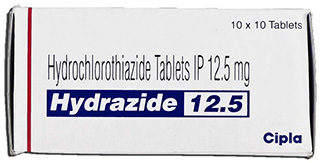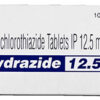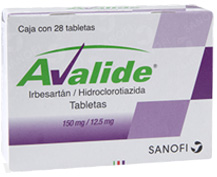Hydrochlorothiazide, also known by its brand name Microzide, is a medication primarily used to treat high blood pressure (hypertension) and fluid retention (edema) in patients with congestive heart failure, kidney disorders, and liver cirrhosis. It is classified as a thiazide diuretic, working by increasing the excretion of water and sodium from the body through the kidneys. This action helps to reduce fluid buildup, lower blood pressure, and improve overall cardiovascular health.
When Not to Take Hydrochlorothiazide
Hydrochlorothiazide should not be taken by individuals with a known hypersensitivity or allergy to thiazide diuretics. Additionally, it is contraindicated in patients with anuria (reduced urine output), severe renal impairment, or hepatic coma. Patients with a history of sulfonamide or sulfonylurea allergy may also be at an increased risk of allergic reactions to hydrochlorothiazide. It is important to consult a healthcare professional before starting the medication to ensure it is safe for personal use.
What to Expect When Taking Hydrochlorothiazide
Common side effects of hydrochlorothiazide may include increased urination, dizziness, lightheadedness, headache, blurred vision, muscle cramps, and nausea. These side effects are usually mild and temporary, often improving as the body adjusts to the medication. It is essential to notify a healthcare provider if any severe or persistent side effects occur, such as irregular heartbeat, chest pain, swelling of the hands or feet, signs of electrolyte imbalance, or allergic reactions like rash, itching, or difficulty breathing.
Dosage Guide
The dosage of hydrochlorothiazide will vary depending on the individual’s condition and response to treatment. It is typically taken orally once daily, either with or without food. The recommended starting dose for adults with hypertension is usually 12.5 milligrams, which can be increased to 25 milligrams if necessary. For edema, the starting dose is often 25 to 100 milligrams daily. It is important to take the medication at the same time each day to maintain consistent effectiveness.
If a dose is missed, it should be taken as soon as remembered. However, if it is close to the next scheduled dose, the missed dose should be skipped. Doubling the dose to make up for a missed one is not advised. In the case of an overdose, medical attention should be sought immediately. Symptoms of overdose may include nausea, vomiting, electrolyte imbalance, dehydration, dizziness, and extreme fatigue.
Hydrochlorothiazide Compatibility
Hydrochlorothiazide has the potential to interact with other medications, including certain blood pressure drugs, beta blockers, nonsteroidal anti-inflammatory drugs (NSAIDs), lithium, corticosteroids, insulin, anti-diabetic medications, and cholesterol-lowering drugs. These interactions can affect the efficacy or safety of either drug, leading to an increased risk of side effects or reduced therapeutic effects. It is important to inform healthcare providers about all current medications, including over-the-counter drugs and supplements, to prevent potential interactions.
Questions and Answers for Hydrochlorothiazide
-
Can hydrochlorothiazide be used during pregnancy?
Hydrochlorothiazide should be used during pregnancy only if the benefits outweigh the potential risks. It may affect fetal growth and the newborn’s electrolyte balance.
-
Can hydrochlorothiazide be used while breastfeeding?
Hydrochlorothiazide may pass into breast milk, potentially causing harm to the nursing baby. It is advisable to consult a healthcare professional regarding the use of this medication while breastfeeding.
-
Can hydrochlorothiazide be taken with food?
Hydrochlorothiazide can be taken with or without food. However, some individuals may experience better absorption when taken on an empty stomach.
-
Is it safe to consume alcohol while taking hydrochlorothiazide?
Alcohol consumption should be avoided or limited while taking hydrochlorothiazide. Alcohol can potentiate the blood pressure-lowering effects of the medication and increase the risk of side effects such as dizziness or lightheadedness.
-
Can hydrochlorothiazide cause interactions with herbal supplements?
Yes, hydrochlorothiazide can interact with certain herbal supplements, such as licorice, which may lead to electrolyte imbalances. It is crucial to inform healthcare providers about all herbal supplements being taken.






Reviews
There are no reviews yet.